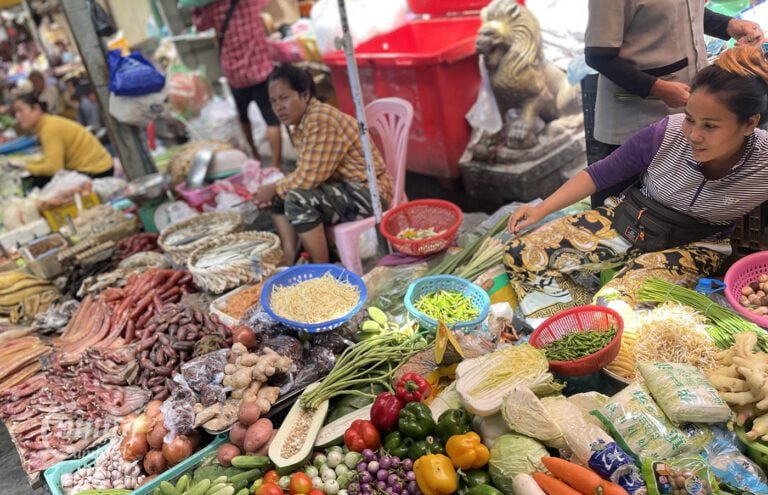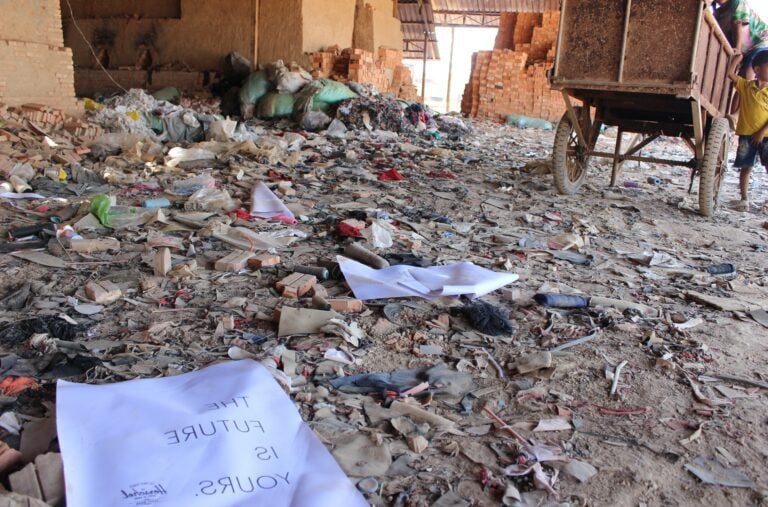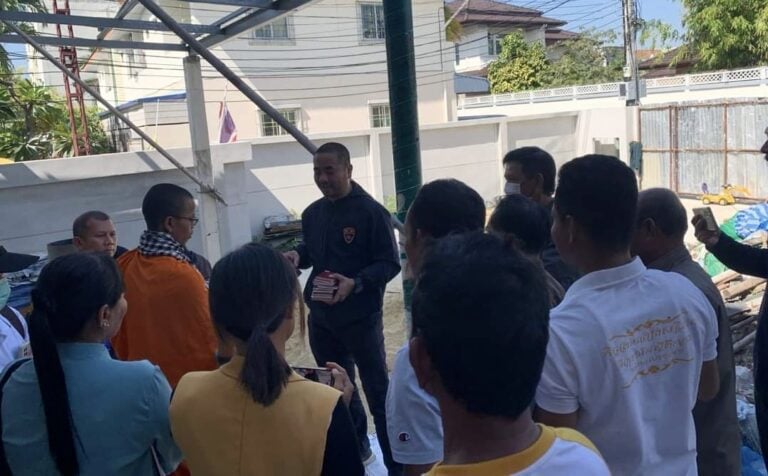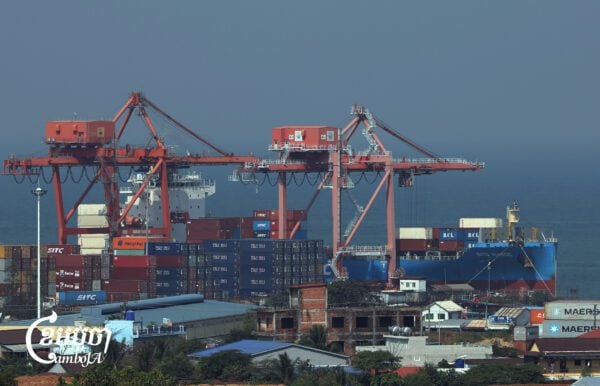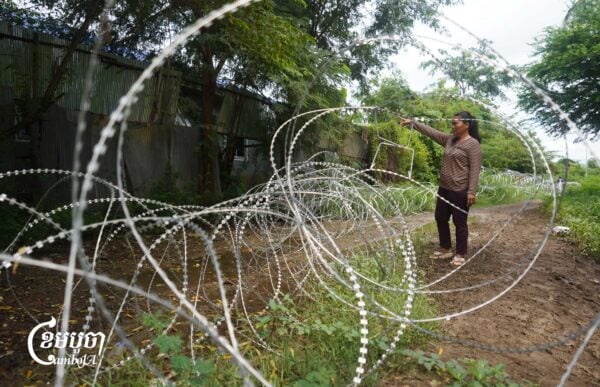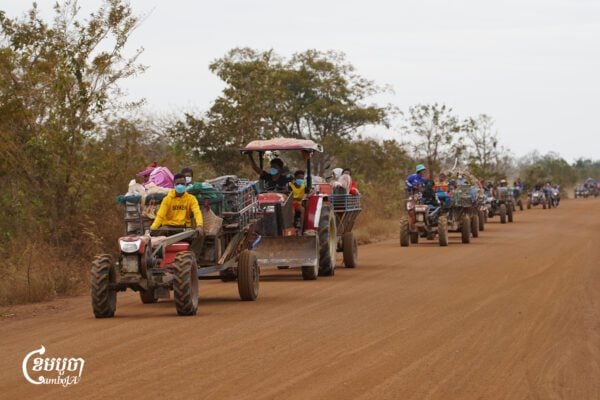Every 40 minutes, one Cambodian dies from cancer – a grim reality announced by Prime Minister Hun Manet recently. Experts caution that contaminated imported food could contribute to the issue. To safeguard public health, the government is stepping up inspections of imported meat and vegetables as the number of cancer cases rises.
The mortality rate from non-communicable diseases (NCD) in Cambodia is approximately 64 percent. Some 23 percent die before the age of 70, meaning one in four Cambodians may die from a NCD, such as cancer, diabetes, cardiovascular disease, and chronic diseases.
At the launch of Cambodia’s National Cancer Control Plan (NCCP) 2025–2030, Hun Manet described cancer, which kills one Cambodian every 40 minutes—or about 38 people each day, as a growing threat to public health and a strain on socio-economic development.
In making that statement, he ordered stricter inspections of imported vegetables and meat, and called for broader public education on the prevention of cancer.
Health Minister Chheang Ra confirmed that around 20,000 cancer cases and 14,000 cancer-related deaths are reported per year, with nearly 75% cervical cancer patients seeking treatment only in the late stages, when chances of survival are slim.
Import more vegetables than meat
Ouch Vuthy, president of Virtuous Medical Association, raised concerns about public health through eating vegetables, fish, meat, and fruits that are not properly sourced and inspected, as well as daily habits of using plastic, which contain chemicals, to pack food, which can affect the health of consumers.
“Vegetables, fish, and frozen meat that contain chemicals will affect people’s health. Cancer is a non-communicable disease, so to protect ourselves, we should change our lifestyle and be very careful about food that is not of clear origin,” Vuthy told CamboJA News.
According to him, it is easy for consumers to get cancer through chemical-laden food, as most consumers do not pay close attention to what they eat daily. To ensure good public health, relevant ministries need to strengthen law enforcement on food imports.
“Relevant ministries should inspect imported foods, especially frozen meat, to ascertain the type of chemicals. Citizens should also be wary of food safety before eating,” he added.
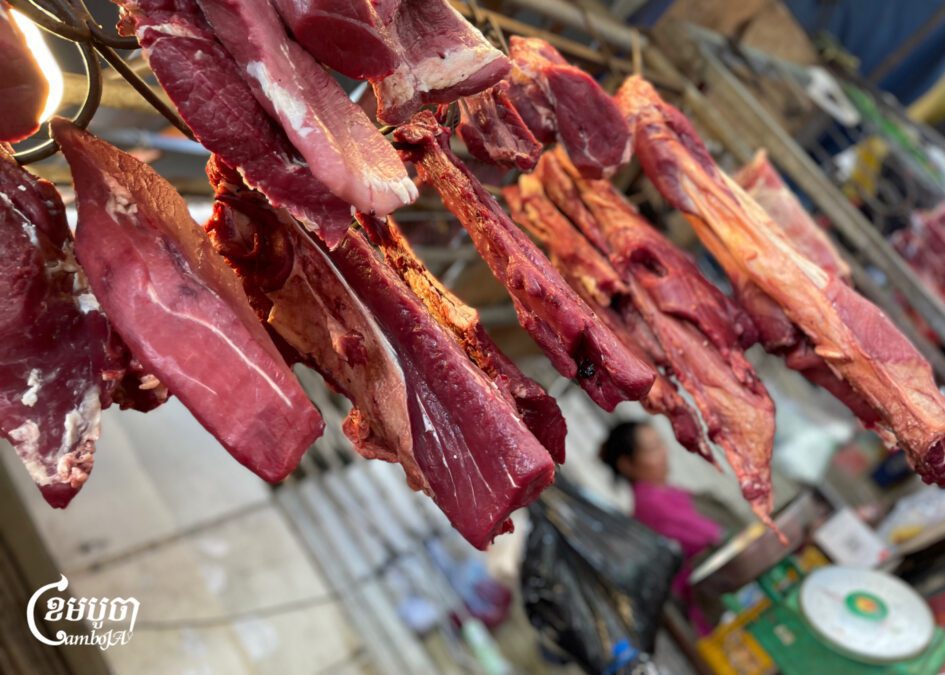
Ministry of Agriculture, Forestry and Fisheries spokesperson Khim Finan said they have been implementing measures to protect people’s health. They also collaborated with the General Department of Customs and Excise (GDCE) and the Ministry of Commerce (MoC), to enhance enforcement.
Finan said Cambodia imports a small amount of meat compared to vegetables, which sees high shipment from neighboring countries.
“We import more vegetables than meat but we don’t have [the latest] figures. In general, we have our own procedures. With regards to agricultural products, we have hygiene requirements,” Finan said.
In 2020, Cambodians consumed 573 tons of vegetables per day, ministry data showed, with 400 tons grown locally; the rest imported from Vietnam, Thailand and China.
Small group of corrupt traders
On February 18, the Council of Ministers ordered the MoC to immediately strengthen its laboratory capacity to analyze Basic Yellow 2 or Auramine O, and Cadmium – two types of chemical found in durians imported from Thailand and Vietnam.
The measures were announced after Chinese authorities found these chemicals in durians imported from Thailand and Vietnam. Basic Yellow 2, considered hazardous by the World Health Organization, is a cancer-causing substance.
Earlier this month, Thailand buried more than 67 tons of durians exported to China after Chinese customs refused to accept them following the discovery of the yellow chemical in the fruits.
Pen Sovicheat, spokesperson for MoC, told CamboJA News that his ministry continues to enforce food safety laws through its General Department of Consumer Protection, Competition, and Fraud. He emphasized the importance of the Consumer Protection Law and the Food Safety Law in protecting public health.
“We always think about the well-being of the people,” Sovicheat said, adding that MoC has issued warnings to stakeholders and increased sampling of durians and other imported produce at markets to detect harmful substances.
“Chemicals are not only found in durians, but also fresh and frozen fish, and vegetables that are stored for a long time and can affect health,” he mentioned.
“We are implementing all these measures because our main goal is to protect the health of citizens.”
Asked to disclose data on illegal food imports, he declined, but noted that “only a small group of corrupt traders are involved, while most of the registered companies complied with the law”.
In the first half of 2024, the General Department of Consumer Protection, Competition and Anti-Fraud (GDCAF) seized and destroyed more than 230 tons of substandard and illegal frozen meat. The crackdown highlights ongoing efforts to protect consumers from unsafe food products and enforce the country’s food safety regulations.

‘Burn them, suppress them’
Srun Pav, president of Cambodia Livestock Raisers Association, said if the law is strictly enforced, the import of vegetables, fruits and meat containing chemicals will decrease. Given that Cambodia has many small border crossings, officials at the border must inspect goods containing chemicals.
“There are many border crossings, so there are some gaps in enforcement. I urge relevant institutions at the border to tighten the rules and prevent this problem for the sake of people’s lives,” Pav told CamboJA News.
A vegetable farmer in Battambang province, Im Sopheak, 44, said establishing controls on the import of vegetables, fruits, fish and meat from neighboring countries to ensure food safety is “good” and “commendable”. However, law enforcers must implement the law strictly and effectively.
“I don’t know exactly which ports are used for imports, but I know that imports may have more chemicals than our local products. If imported vegetables contain lots of chemicals, it will definitely affect people’s health,” he said.

Kun Nhim, Minister Delegate to the Prime Minister and Director-General of Customs and Excise (GDCE), told CamboJA News that their existing joint mechanism with MoC restricts the import of vegetables, fruits, fish, and meat.
Although there is no exact figure for the suppression of spoiled frozen meat, Nhim said GDCE has burned them in the past, and suppressed the import continuously.
“To prevent infectious diseases, we have tightened border crossings with Thailand and along the corridors. Now, we are considering and discussing what measures we can take regarding durians from Vietnam. Whenever there is a problem, we don’t stay silent, but discuss and find solutions,” Nhim said.
Grow more produce locally
Bek An Lung Durian Association president Heng Chengly said durian imports from neighboring countries is “not a new thing“; it has been happening for many years. Therefore, to safeguard public health, strict enforcement of the law, especially at smaller border crossings, is necessary to prevent durian imports from neighboring countries.
He pointed out that there is already a high durian supply in the market, while local durian harvest has not reached that level yet. He urged buyers to check the fruits well because “imported durians use chemicals”.
“We see that some border crossings have strict restrictions, so we call on officials at other border crossings to take strict measures because it not only affects the local farmers’ economy, but also has a serious impact on public health,” Chengly said.

The Food Safety Law passed in 2022 imposes strict penalties on vendors selling unsafe or unlabeled food. It regulates all stages of food operations—from packaging and distribution to retail sales—to protect public health.
Khen Davy, a resident who lives in Phnom Penh, expressed concern over food safety and wanted to see stronger action to combat food imports from neighboring countries which lack standards.
She said some fruits and vegetables in the market do not seem to have any clear source. This requires strict measures and additional mechanisms to ensure food safety standards and public health.
“The people have requested it, but we don’t know whether the ministry will do more to prevent it. If there is better management, the problem will be reduced,” Davy shared.
She expects relevant parties to develop local vegetable and fruit cultivation to meet people’s needs, rather than increase imports.




